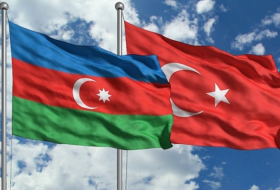Human Rights Watch condemned the move as “ominous turn” adding it “should worry anyone concerned about Israel’s commitment to basic democratic values.”
The new policy emerged after Israeli authorities turned down a visa for its new Israel and Palestine director, Omar Shakir who is a US citizen. The rejection had been advised by Israel’s Ministry of Foreign Affairs.
In a letter rejecting Shakir’s visa application – and seen by the Guardian - Israel accused the New York based group of “public activities and reports [and being] engaged in politics in the service of Palestinian propaganda, while falsely raising the banner of ‘human rights.’’
The group denied the claim pointing out it had written critical reports on human rights violations on both sides including the arbitrary detention of journalists and activists by the Palestinian Authority and Hamas, an extrajudicial execution carried out by Hamas’s military wing, and on executions by Hamas authorities in Gaza.
The denial of the visa was confirmed in a letter on February 20 when Israeli authorities informed it the request had been rejected because HRW is “not a real human rights group”, the group said in a statement. Israeli foreign ministry spokesman Emmanuel Nahshon confirmed the decision.
HRW, he said, had “demonstrated time and again it is a fundamentally biased and anti-Israeli organisation with a clear hostile agenda.”
But Nahshon added that the group was not banned and its Israeli and Palestinian employees would still be permitted to work in Israel and issue reports.
“But why should we give working visas to people whose only purpose is to besmirch us and to attack us?” he asked.
Suggesting a wider policy, Nahshon said other organisations such as Amnesty International would be assessed on a case by case basis.
Israel’s government, seen as the most right-wing in the country’s history, has been accused of putting pressure on both international and local rights organisations.
Condemning the move, Iain Levine, deputy executive director of program at Human Rights Watch said: “This decision and the spurious rationale should worry anyone concerned about Israel’s commitment to basic democratic values.
“It is disappointing that the Israeli government seems unable or unwilling to distinguish between justified criticisms of its actions and hostile political propaganda.”
Human Rights Watch added in a statement: “The decision marks an ominous turn after nearly three decades during which Human Rights Watch staff have had regular access without impediments to Israel and the West Bank. Israel, though, has refused Human Rights Watch access to Gaza since 2010, except for one visit in 2016.”
The latest moves come in the midst of a wider chilling of the atmosphere in Israel against human rights activists.
In December Israel detained at Ben Gurion airport and then deported a prominent African theologian, Isabel Phiri, over claims that the World Council of Churches, for who she works, was engaged in supported sanctions against Israel.
Last year, the Israeli parliament passed a controversial law compelling Israeli NGOs that receive most of their funding from foreign state entities to declare it in official reports.
The law did not specifically refer to left-wing organisations, but is applicable to some 25 NGOs.
Right-wing NGOs, such as those supporting Israeli settlements, tend to rely on private donations, to which the law does not apply.
Commenting on the decision to deny his visa Omar Shakir compared Israel to a list of authoritarian regimes.
“We have little relations with governments in North Korea, Sudan, Uzbekistan, Cuba and Venezuela where there is zero appetite for human rights engagement,” Shakir said. “With this decision, Israel is joining the list.”
More about:
















































